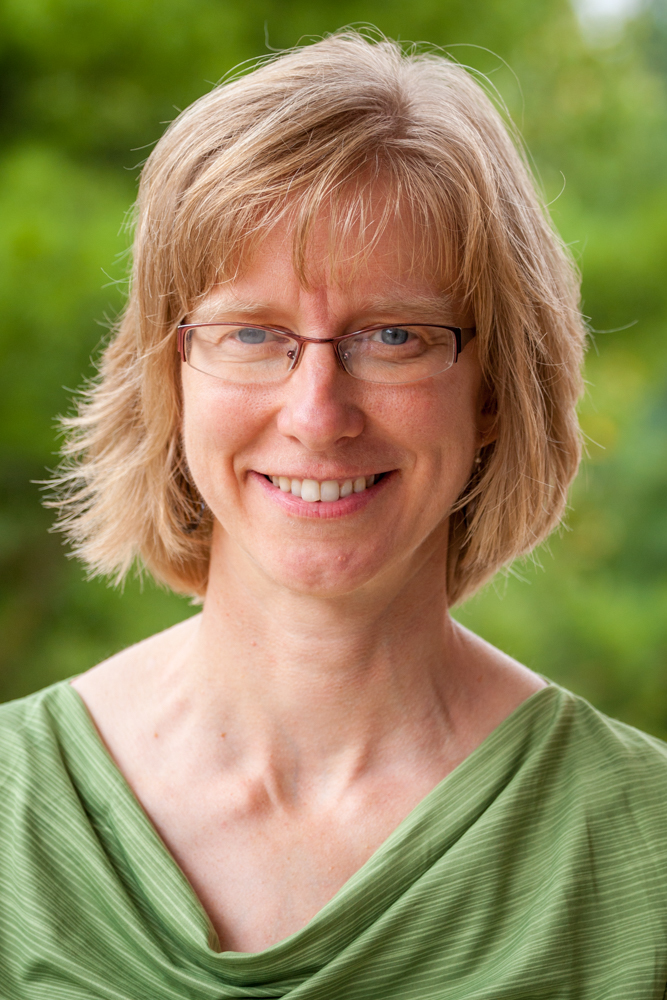
Writer, photographer and EMU student Katie Meza manages the EMUSTEM Facebook page, where this article about Professor Laurie Yoder first appeared in honor of International Women and Girls in STEM Day.
An incredible variety of STEM opportunities are available for women and girls today then there were ten or more years back. These range from workshops to conferences to camps. What is exciting about STEM education today, and what are examples of approaches that are improving the STEM landscape?
Hundreds of girls gathering for a Saturday of STEM activities is beautiful and exciting! This happens at JMU’s Expanding Your Horizons workshop every Spring. Programs dedicated to outreach to girls from elementary grades through high school can help them imagine what is possible. I think it helps girls see that a STEM career can be relational, fun, and linked to what they are already interested in.
Growing up in a rural community, the only STEM-related career options that I was even aware of were teachers and doctors. That’s it! It felt a bit disorienting, because what could I do if I loved math and science, but not medicine or middle school?
When I was 13, I attended a summer program at Iowa State University for three weeks, in which we lived in the dorm, took classes, and did a mini-research project. I picked the biochemistry track, as did one other girl and about 20 boys. We heard lectures from a professor. We toured the biotech labs of a company developing agricultural products. We didn’t get made fun of for being “smart girls”. We did projects in the lab–I still remember being wowed by the spectrophotometer that I used to analyze the colors of flower petals that I collected from the campus landscaping. There was so much more to doing science than I had ever imagined!
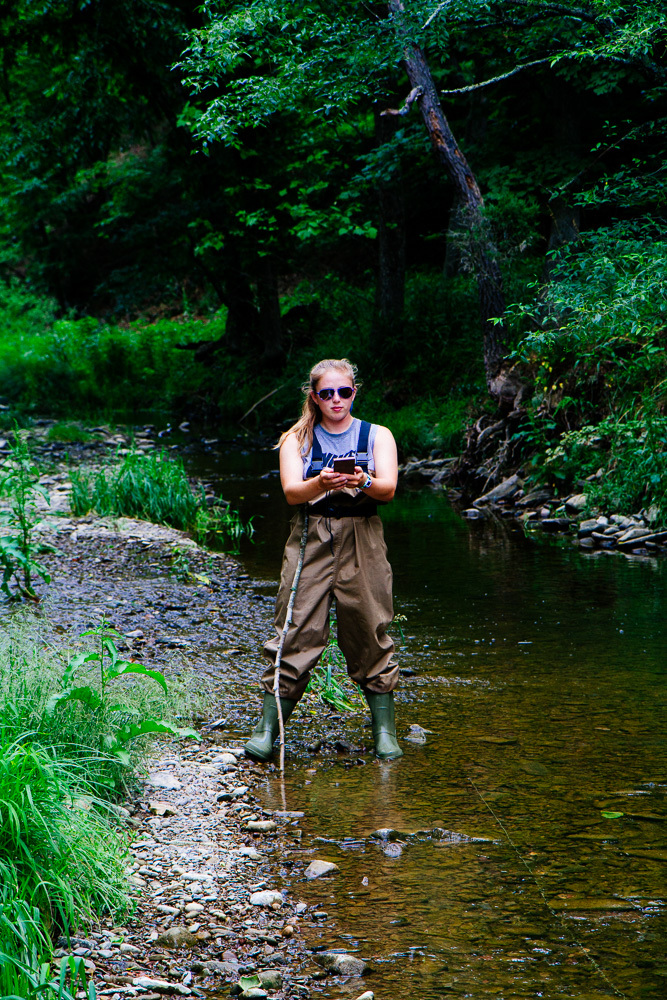
That’s when I decided to pursue chemistry. And that’s when I realized that there were still not going to be many women around. In many ways, that has changed as girls, at least in this university-dominated community, are able to see so many options. I wonder if it would be the same in our rural areas, or inner cities?
In what ways have you taught or mentored women and/or girls? And how did you encourage their participation?
I enjoy going on school field trips with my daughters. One year I was helping with the 6th-grade water quality trip and I was impressed with how so many of the girls got right in and took their data-gathering and calculations seriously. They were not intimidated by either the science or the math, or by asking questions. It made sense because their teacher had high expectations and took their questions and contributions seriously. I found myself hoping that these girls will continue to have strong mentors and role models so their courage and determination will not slip throughout middle and high school. I have seen girls flourish under the mentorship of adults, both women and men, who take them seriously and honor their efforts and insights.
When I was in graduate school, I participated in a grant that linked upper-level graduate women with first-year women in mentoring relationships. I found it challenging to be on the “mentoring” side because I felt like I was learning more from the experience than I was contributing. It struck me how very different our experiences were, even though we were all women.
We came in with different confidence levels, different expectations for ourselves, and different experiences of how we were treated in our laboratory groups. In retrospect, this was probably one of the most valuable things I have learned. There isn’t a one-size-fits-all way of being a woman in STEM. Also, that is why I can’t speak for all women and I don’t always have the necessary knowledge or the right advice. But what I can do is hold open space for people to be accepted and honored for who they are.
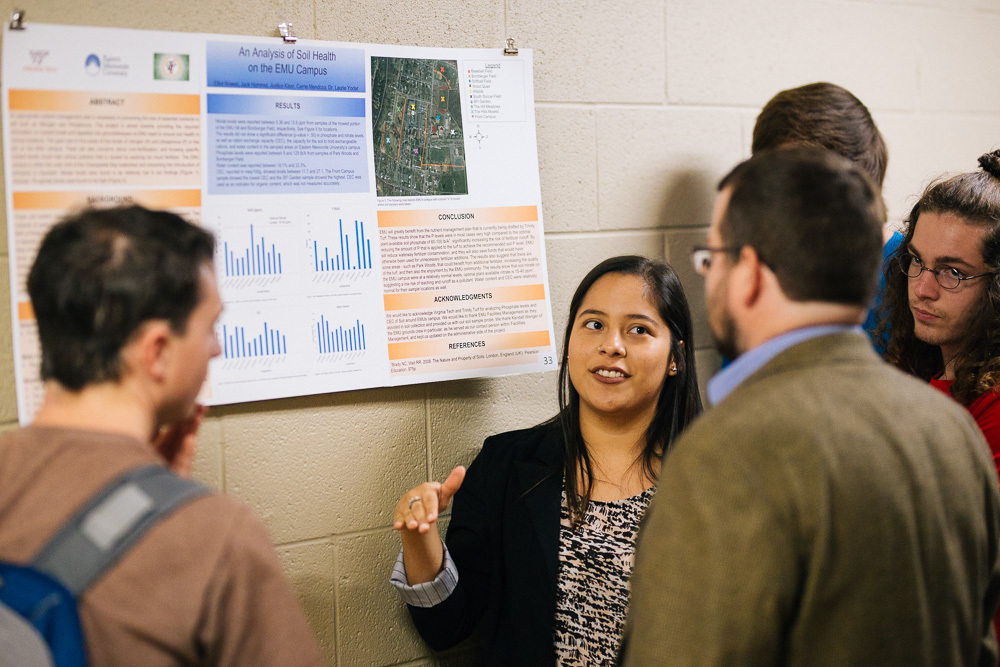
Who were some of the mentors in your life who encouraged you to pursue your STEM passions?
When I was in college the question of choice was (and still is!) “What’s your major and what are you going to do with it?” (You can check out my views on that in The Weather Vane circa 1992).
There were science-y careers that were generally honorable for Mennonite women like teaching or medicine, but generally, I didn’t experience a vision within the community that honored other options like graduate school or research.
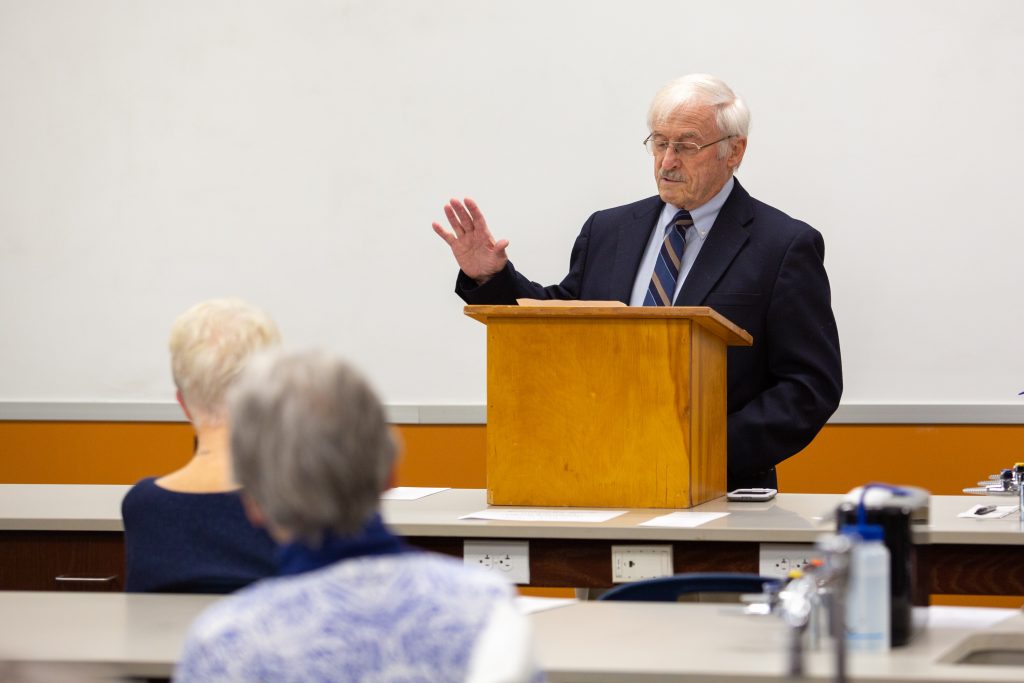
The exception was my chemistry professor and advisor Glenn Kauffman. I have a clear memory of sitting in his office, talking about future options. I suggested a path that, in retrospect, would have sold myself short. He came right out and said, no, you need to go to graduate school, and he explained what that would look like. He took me to meetings of the American Chemical Society so that I could see what else was going on in the chemistry world, and he guided my research project in the lab (unfortunately, largely unsuccessful, but that’s science). He also included me and other students in the faculty search process that resulted in EMU hiring its first woman faculty member in chemistry.
Do you want to give a shout out to a woman who has been a great role model and inspiring leader in your life?
Mrs. Loescher was my seventh grade science teacher and Science Fair advisor. I hung out in her room before and after school with my friends. I still have vivid memories of her classroom, her silly jokes, learning mitosis and taxonomy and hunting safety (of all things!) and how I felt like I belonged there.
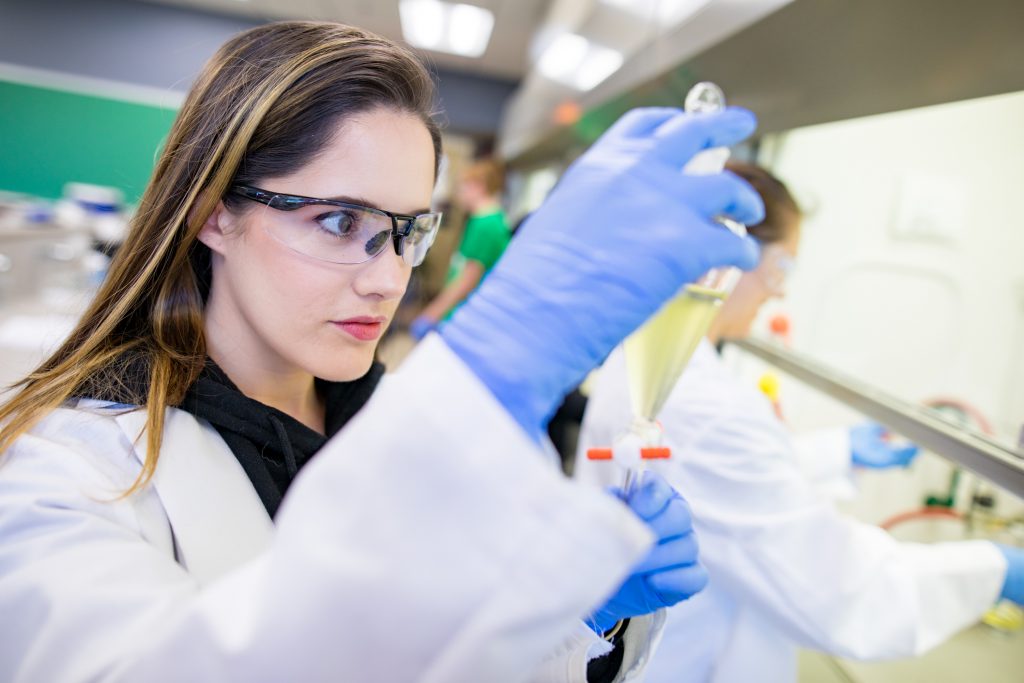
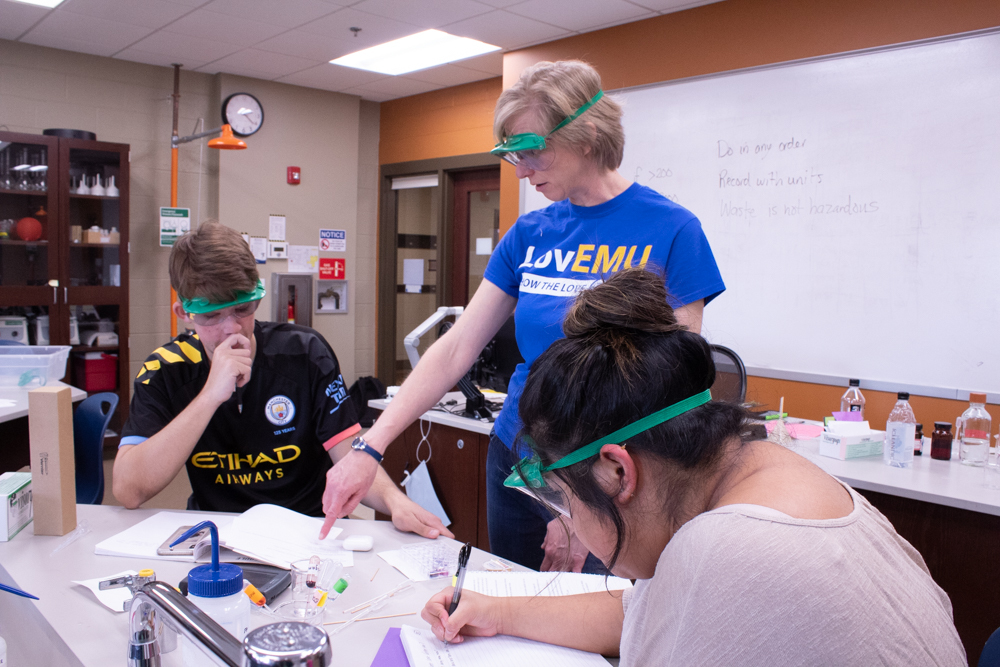
Yeah Laurie! Thanks for forging a path for budding female scientists to shine!
So proud of all you have accomplished, Laurie!